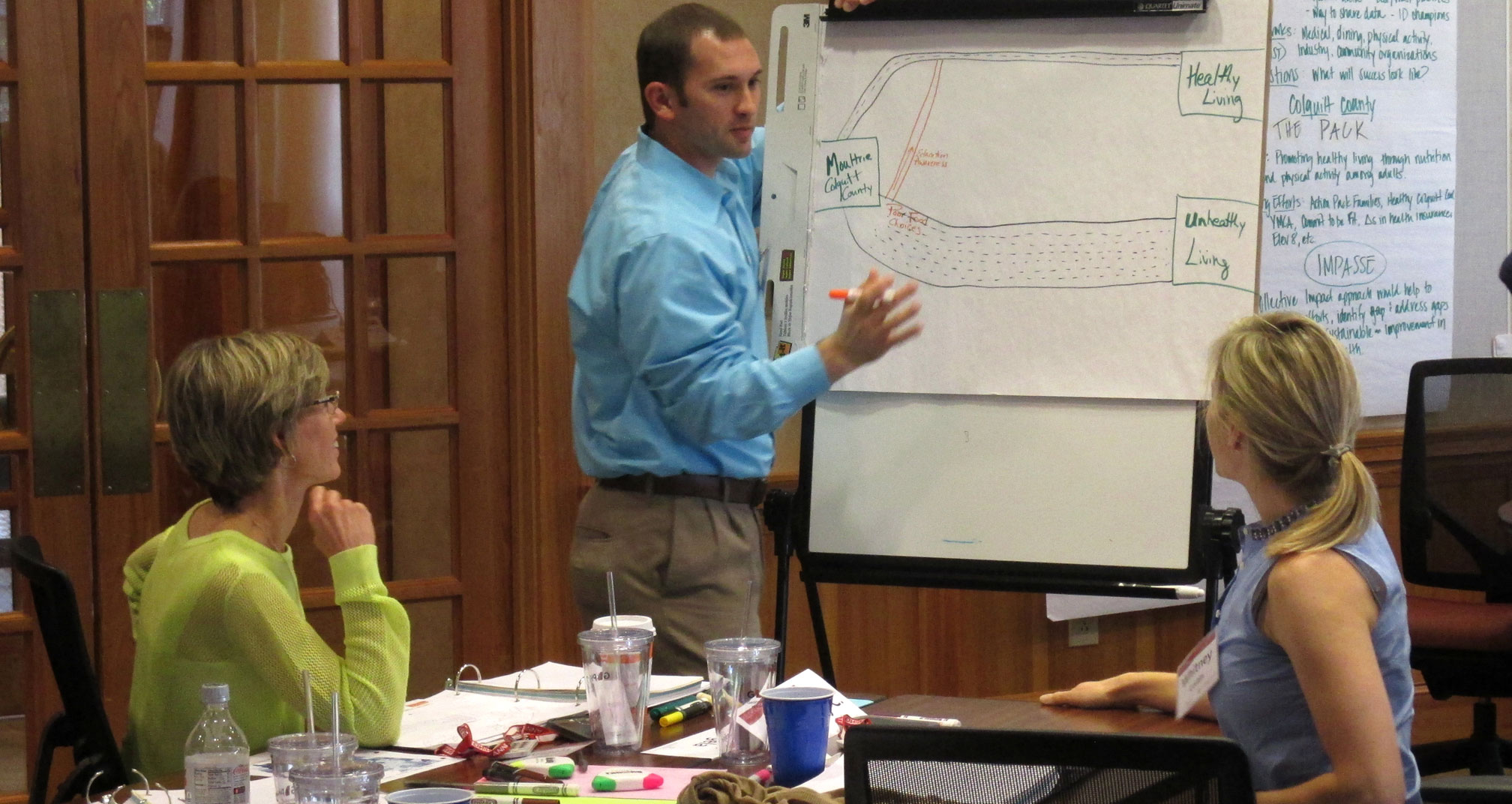Imagine that every Georgian has fresh food to eat, lives on safe streets, and enjoys physical and mental well-being—no matter what their ethnicity, income or zip code. Teams from five Georgia communities participating in the University of Georgia’s Public Health Leadership Academy are imagining just that.
“The issues we face in public health—such as obesity, infant mortality and teenage pregnancy—are complex problems,” said Marsha Davis, associate dean for outreach and engagement in the College of Public Health and director of UGA’s Public Health Training Center. “Solutions involve multiple strategies and different sectors within communities. We need to have an understanding that everyone is in this together.”
To do that, the College of Public Health partnered with the J.W. Fanning Institute for Leadership Development to design the Public Health Leadership Academy, which is in the process of training community leaders to create and sustain a culture of health in their home communities. CPH offers the public health expertise and Fanning brings expertise at building community capacity and collective impact.
“This innovative collaboration is a departure from individual leadership development,” said Louise Hill, a senior public service associate and co-lead of the Fanning team. “Teams from different sectors of a community—such as health, education, business and policy—are training together to learn how they can build a culture of health locally.”
Healthy communities implement policies and practices that influence the social, economic, psychological and environmental well-being of the community on people’s health and offer ways for individuals to make healthy choices. That means many sectors of the community play a role in creating that supportive environment including education, housing, transportation, recreation, nutrition, safe and clean environments, access to health care, employment and income.
Specifically, the five teams—from Colquitt, Sumter and Washington counties and multi-county LaGrange and South public health districts—will learn how to lead using a collective impact model.
While there are many forms of collaboration, the collective impact model is designed to address a big problem that needs a long-term solution. The approach mines existing community assets, knitting together social capital, people and organizations in new and different ways that align resources and efforts around a given outcome—in this case, a better culture of health.
“We see that a collective impact approach can move the needle on complex social issues like public health when the traditional approach won’t,” said Carolina Darbisi, public service associate and co-lead of the Fanning team.
The third session of the Public Health Leadership Academy takes place in June. The academy offers an array of experiential learning activities that includes six face-to-face multiday sessions, distance learning, discussions with subject matter experts and national public health leaders, support and peer networking and the design of an applied project in each team’s respective community.
“After the first two sessions, we’re seeing teams begin to reframe their thinking, to think about issues in a broader perspective and see how things that are happening in the community can be framed as assets and ways to make connections,” Hill said.
Teams participating in the Public Health Leadership Academy include the following:
- Colquitt County (representatives from the YMCA, a bank, Archway Partnership and a medical center);
- Sumter County (representatives from organizations that serve senior citizens and children, the public school system and higher education);
- Washington County (representatives from the public health department, a technical college and children’s health care);
- Health District 4, LaGrange (representatives from Family Connection, YES Team and business services); and
- South Health District (representatives from environmental health, communications, a program associate and a health care liaison).
The J.W. Fanning Institute for Leadership Development is a unit of the Office of Public Service and Outreach at the University of Georgia. Dedicated to building a better Georgia, Fanning has been strengthening communities and organizations through leadership development, training and education since 1982. For more information, see https://fanning.uga.edu.
UGA College of Public Health
Founded in 2005 as a response to the state’s need to address important health concerns in Georgia, the UGA College of Public Health offers degree programs in biostatistics, disaster management, environmental health, epidemiology, gerontology, global health, health promotion and behavior, public health, health policy and management and toxicology. For more information, see https://publichealth.uga.edu.
Original article at https://outreach.uga.edu/building-a-culture-of-health-in-georgia/
– Kathleen Cason
Posted June 4, 2015.







